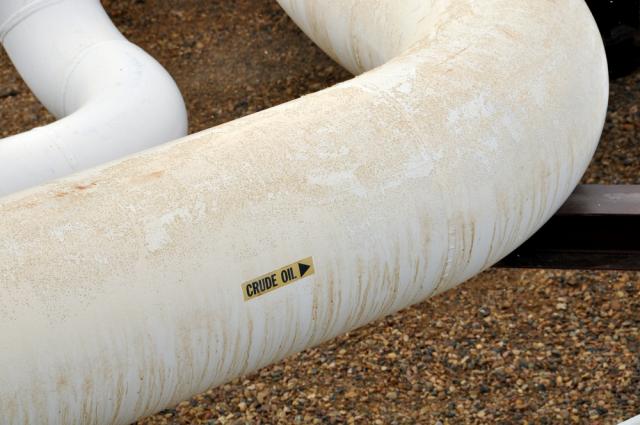Just another day in reckless energy land. A broken pipeline at the Commerce City refinery operated by tar sands producer Suncor appears to have leaked an “oily muck” into Sand Creek in Colorado.
The spill may pose a threat to Denver drinking water supplies, although luckily it appears to have been contained, according to some media accounts.
“The Canadian energy firm said it had not yet identified the source of the leak, but acknowledged it was likely coming from its 93,000 barrel-per-day (bpd) refinery in the area. …
Sand Creek joins the South Platte River, a major source of drinking water for the Denver metropolitan area.
Suncor’s Commerce City plant recently underwent a $540 million upgrade to enable it to handle more heavy oil sands crude from Canada.
NRDC‘s Switchboard blogger Anthony Swift reports that:
The spill was discovered by a fisherman Sunday morning who saw sheen on the river and said the area smelled like a gas station. On Monday officials from the Environmental Protection Agency (EPA) arrived onsite and Suncor reported a leak. On Tuesday evening Suncor and EPA officials decided to dig a trench. This afternoon, EPA officials announced that three small booms erected on a bank of Sand Creek appear to be containing the oil and preventing further contamination.
The extent of the contamination is still unclear. If the leak involves tar sands diluted bitumen, the contamination could be more severe. Tar sands diluted bitumen spills are associated with significantly more submerged oil which cannot be contained by surface booms. Spill responders are still struggling to handle the submerged oil at Enbridge’s Kalamazoo oil spill. However, this spill shows the weakness in spill response and is yet another example of the very real risks inherent in tar sands infrastructure projects.
“On Sunday morning, a fisherman reported the latest spill into Sand Creek and the South Platte after wading into the muck. The state relied on the Tri-County Health Department to check out the report, and Tri-County could not find an oil sheen on the water.
The fisherman wrote a blog post that was read by a man in Boise, Idaho, who left a voice message at The Denver Post. Post queries Monday included a check with an EPA duty officer. That officer dispatched Kimbel, who smelled and then found the mess and launched an EPA response Monday afternoon.”
Image credit: Jeff Whyte / Shutterstock
Subscribe to our newsletter
Stay up to date with DeSmog news and alerts







